Rubber gloves are important for protecting our hands from various dangers when performing daily tasks and working professionally.
Hand coverings protect you from harm, whether you are using electrical appliances, handling chemicals, or cleaning dishes.
We will explore various rubber glove kinds and their characteristics in this extensive guide, giving you the knowledge you need to make an educated choice.
They’re also essential for athletes, with MMA gloves offering protection during intense training sessions. Additionally, Isotoner gloves provide comfort and warmth during cold weather while ensuring a secure grip.
Features of Rubber Gloves
Hand coverings are made with great care and attention to detail to suit a wide range of tasks and environments.
Whether you’re looking for household gloves for everyday chores like dishwashing and cleaning or industrial gloves for heavy-duty use in challenging environments, there is a perfect glove for every need.

From insulated hand coverings that protect against electrical shocks to butyl rubber gloves designed to resist corrosive chemicals, the options are endless.
Each type of rubber glove offers unique features and benefits, ensuring that you can find the perfect fit for your specific requirements.
Variety of Rubber Gloves
1. Household Rubber Gloves:
Ideal for dishwashing, cleaning, and general household tasks, these gloves are often made from latex or nitrile rubber.
Household rubber gloves are not only practical for daily chores but also come in a variety of colors and styles to suit your personal preferences.
With their durable construction and comfortable fit, household rubber gloves make tackling household tasks very easy.
Industrial rubber gloves are essential for protecting hands in challenging work environments.
Whether you’re handling harsh chemicals, oils, or abrasive materials, these gloves offer superior durability and resilience.
With their thick construction and robust design, industrial gloves provide a reliable barrier against potential hazards, ensuring your hands are shielded from harm.
From manufacturing facilities to construction sites, industrial rubber gloves are a must-have for professionals working in demanding conditions.
Choose a pair that offers optimal protection and comfort, allowing you to focus on the task at hand without worrying about safety concerns.
3. Insulated Rubber Gloves:
These gloves provide a crucial layer of protection against electrical shocks, making them a vital piece of equipment for electricians, engineers, and anyone working with live wires.
The specialized design of insulated rubber gloves ensures that users can safely handle electrical components without the risk of shock or injury.
These gloves are constructed with high-quality materials that offer excellent insulation properties, effectively preventing electric currents from passing through to the wearer’s skin.
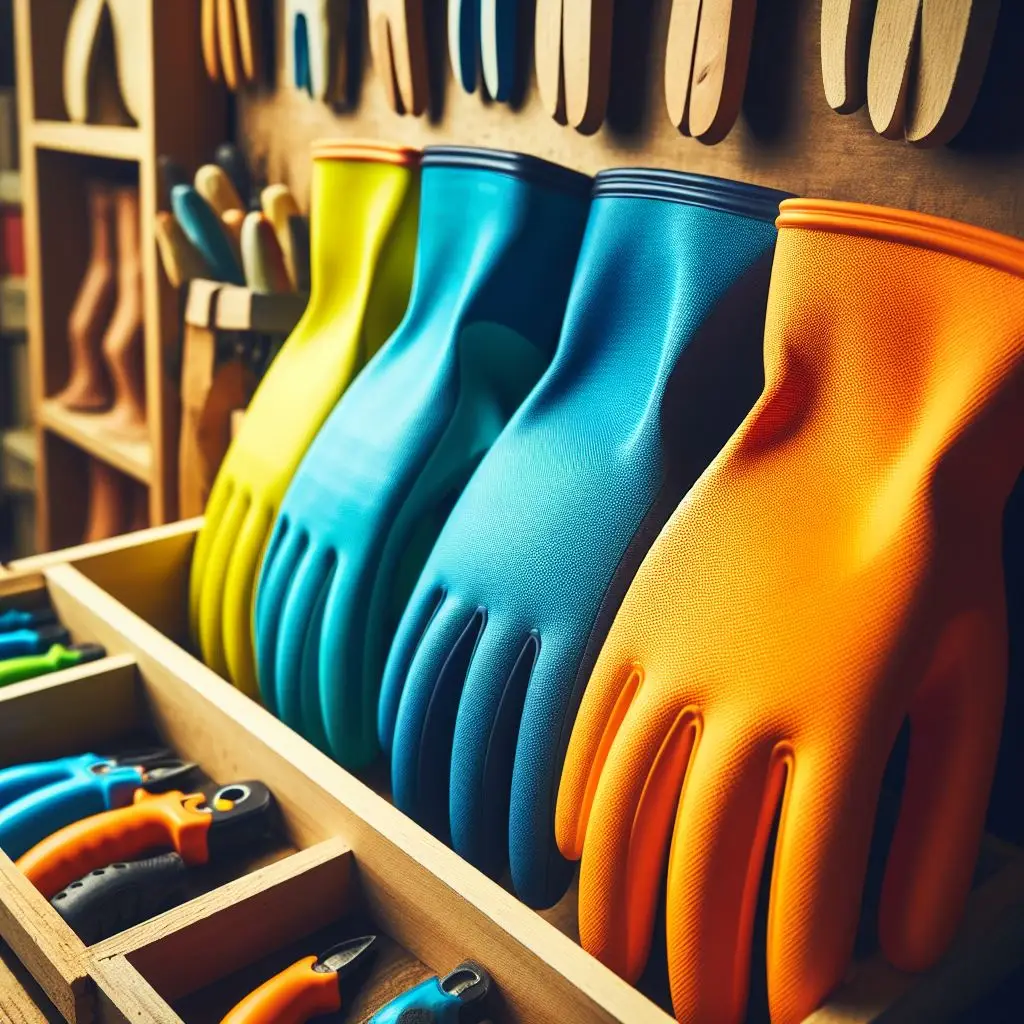
With the reliable performance and peace of mind they provide, insulated hand protection is a must-have for professionals working in the electrical industry.
Whether you’re fixing wiring in a residential setting or working on complex industrial systems, having a pair of insulated hand coverings ready can make all the difference in ensuring your safety on the job.
4. Butyl Rubber Gloves:
Butyl rubber gloves are a versatile and essential choice for those working in laboratories and chemical handling environments.
Renowned for their exceptional resistance to corrosive chemicals, these gloves provide a reliable barrier against a wide range of hazardous substances.
From strong acids to harsh solvents, butyl rubber gloves offer unparalleled protection, making them a top choice for professionals in the field.
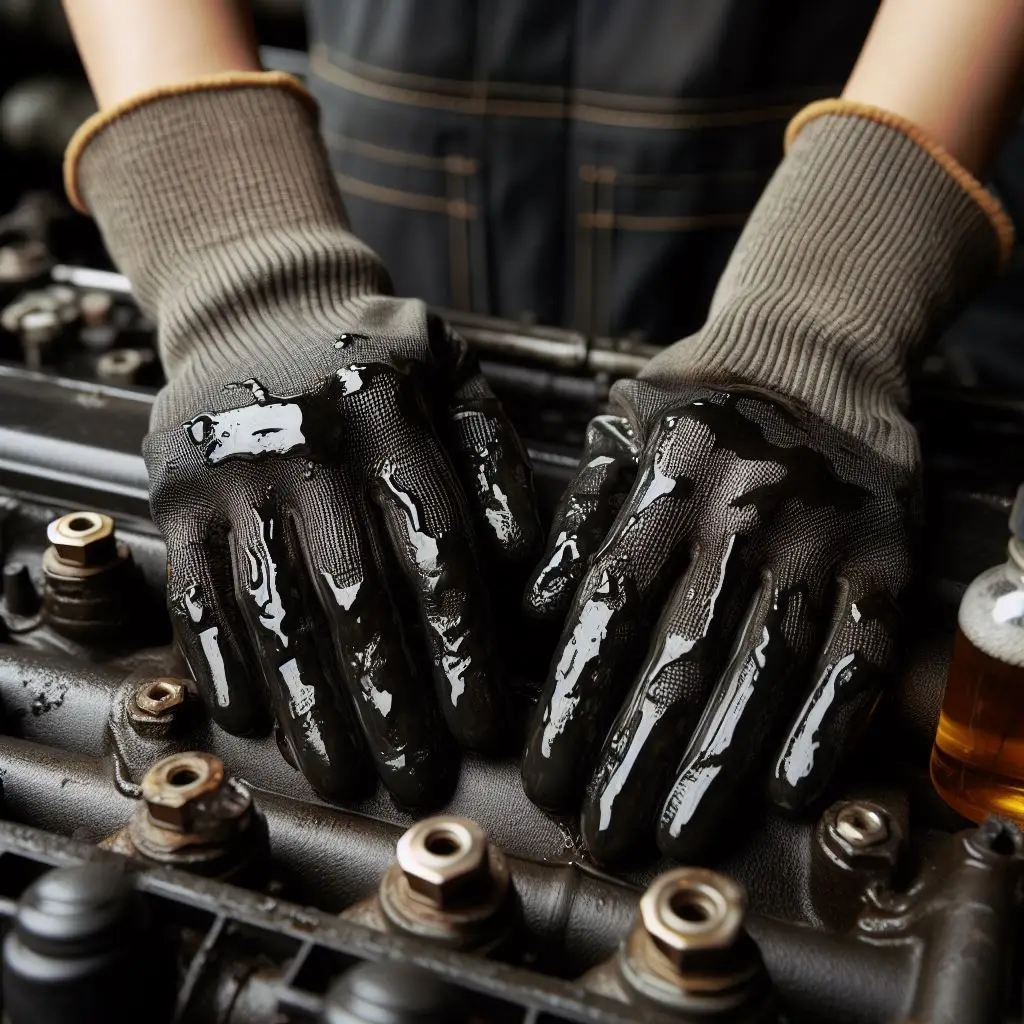
Their durable construction and superior chemical resistance make them a valuable asset in ensuring safety and security while handling potentially dangerous materials.
With butyl rubber gloves, you can confidently tackle challenging tasks with peace of mind, knowing that your hands are well-protected against corrosive elements.
5. Black rubber gloves:
Often used in the automotive industry and for tasks where visibility of dirt and stains is important, black rubber gloves offer both protection and aesthetics.
These gloves are not only practical for tasks where cleanliness is crucial, but they also add a sleek and professional touch to your work attire.
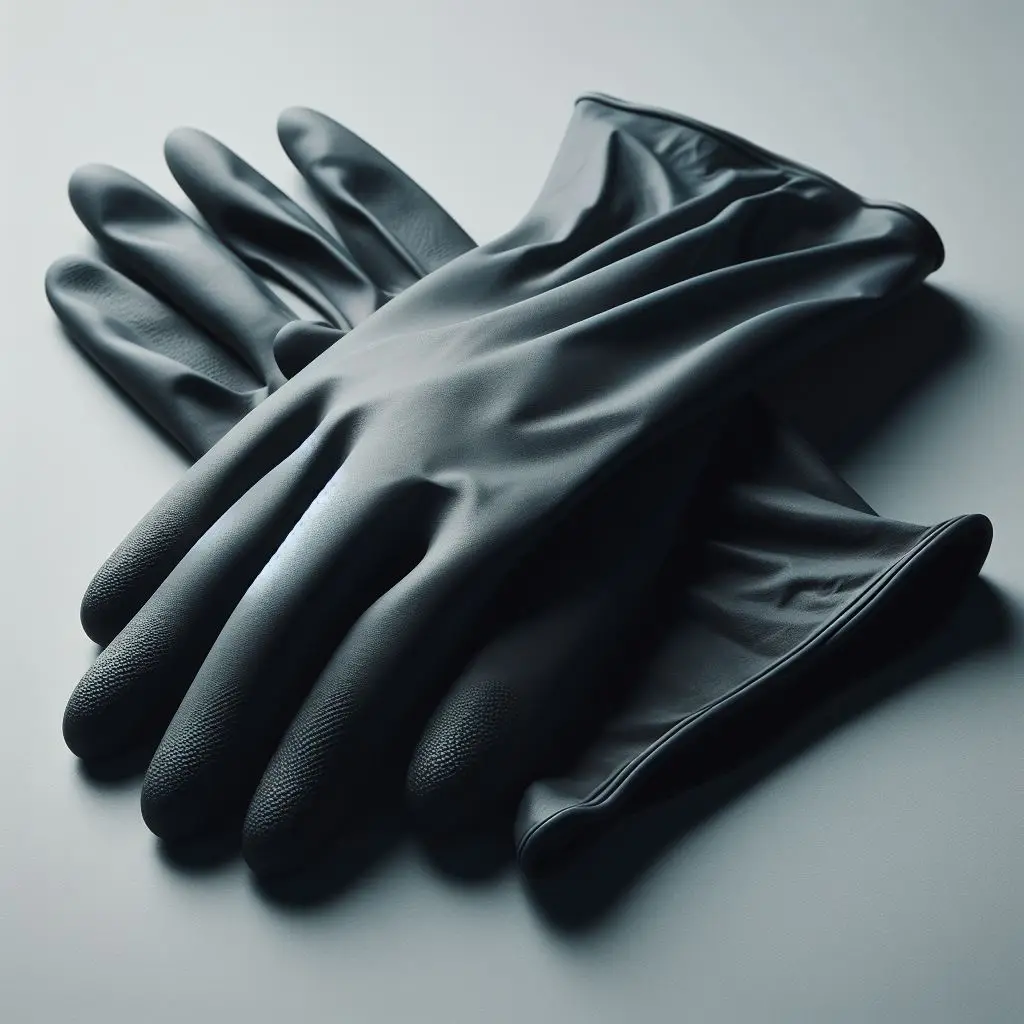
The dark color not only hides stains and dirt but also gives it a modern and stylish look. Whether you’re working on a car engine or handling messy materials, black rubber gloves provide the perfect combination of functionality and style.
With their durability and visual appeal, these gloves are a must-have for anyone looking to make a statement while keeping their hands protected.
Comfort and Flexibility
The finely crafted rubber gloves guarantee flexibility for complex tasks in addition to a secure fit.
This thoughtful approach to construction allows users to maintain dexterity and precision while performing tasks that require attention to detail.
Rubber gloves prioritize fit and flexibility, providing a seamless experience that boosts efficiency and productivity in a variety of settings.
The comfort and usefulness of well-made rubber gloves can make all the difference, whether you are cleaning dishes or working with delicate materials.
Strength and Lifespan
When it comes to the durability of rubber gloves, it’s crucial to consider not only the thickness of the material but also the quality of construction.
Choosing gloves that have stronger cuffs and are resistant to tearing will help them last longer and be able to endure regular wear and tear.
Purchasing durable gloves will guarantee your hands’ safety and comfort for an extended period of time.
Buyer’s Guide to Rubber Gloves
When choosing rubber gloves, consider the following factors to ensure they meet your specific needs:
Material
– Latex:
Offers exceptional elasticity and sensitivity; however, some people may experience allergies.
Since latex gloves are flexible and sensitive to touch, they are a popular option for tasks requiring dexterity and precision.
However, it’s important to note that latex allergies can be a concern for some users, so individuals with sensitivities should opt for alternative materials like nitrile or neoprene.
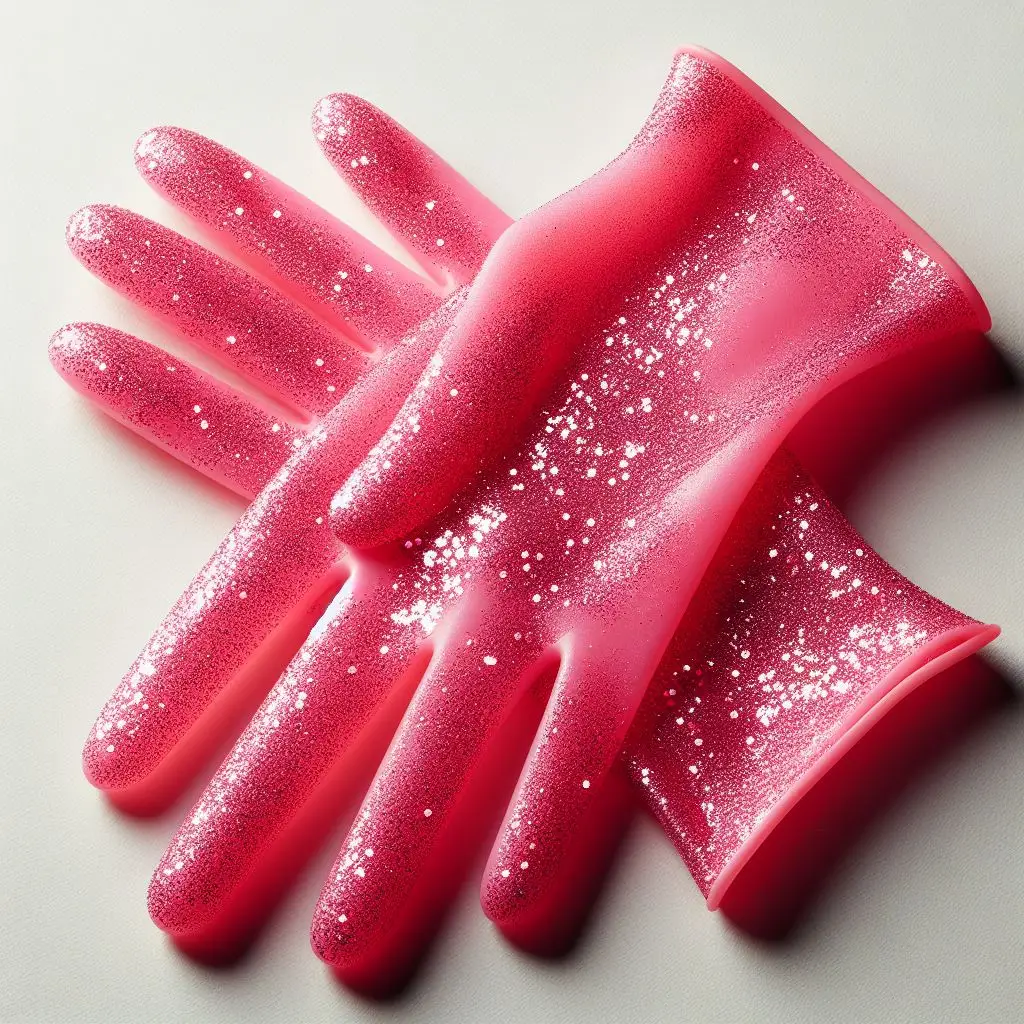
– Nitrile:
Nitrile gloves are latex-free, great for people allergic to latex, and offer outstanding chemical resistance.
Because of their exceptional resistance to oils, solvents, and chemicals, nitrile gloves are becoming more and more in demand as a flexible choice for a variety of uses.

Because these gloves do not contain latex, people who are allergic to the material can wear them without worrying about any negative effects.
– Neoprene:
Known for its resistance to oils, solvents, and acids, neoprene gloves are suitable for industrial applications.
Neoprene gloves are highly durable and offer exceptional resistance to a variety of substances, making them a reliable choice for industrial settings where exposure to harsh chemicals is common.
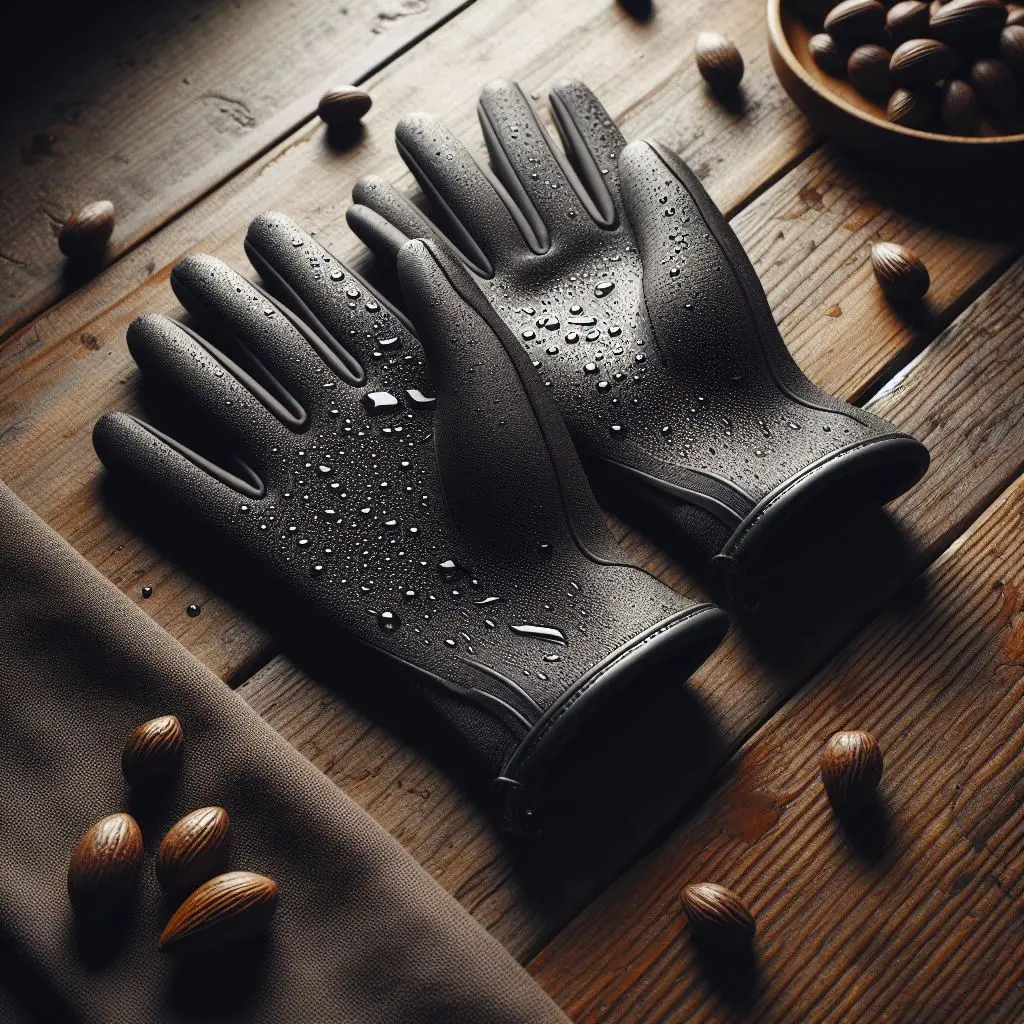
The unique properties of neoprene make these gloves a preferred option for professionals seeking reliable hand protection in challenging work environments.
Size and Fit
When selecting the right pair of gloves, it is essential to prioritize both comfort and functionality.
Ensuring a snug fit without compromising movement is key to optimizing performance and safety.
Most reputable brands provide detailed sizing charts to assist you in finding the perfect fit for your hands.
Additionally, it is crucial to consider the length of the gloves to guarantee full coverage and protection for your hands and wrists.
By taking these factors into account, you can confidently choose gloves that not only fit well but also offer the utmost comfort and security for your hands in any work environment.
Thickness
Thicker gloves offer a higher level of protection against chemicals and punctures, serving as a robust barrier for demanding tasks.
The added thickness provides a sturdy shield for your hands, safeguarding against potential hazards in industrial settings.
When choosing the right gloves, it’s essential to consider the specific requirements of your job to determine the ideal thickness.
For heavy-duty tasks that involve handling abrasive materials or potentially harmful substances, opting for thicker gloves is crucial to ensure maximum safety and protection.
On the other hand, thinner gloves are preferred for tasks that require precision and fine motor skills, allowing for enhanced dexterity and tactile sensitivity.
By understanding the balance between thickness and functionality, you can select gloves that cater to your unique needs and optimize your performance in any work environment.
Grip
When choosing protective gloves, it is vital to prioritize those with textured surfaces or grip patterns, as they enhance the handling of wet or slippery objects, ensuring a secure grip at all times.
A strong grip is essential for maintaining control and preventing accidents when working with a variety of materials and surfaces, especially in challenging environments where stability is key.
By opting for gloves with enhanced grip features, professionals can confidently tackle tasks, knowing that they have the necessary support to handle potentially tricky situations with ease and precision.
The addition of textured surfaces or grip patterns not only improves safety but also boosts overall efficiency and productivity, making them a valuable asset in any work setting.
Observance and Licensure
When selecting hand protection for specific industries, such as healthcare or food handling, it is important to prioritize safety standards and certifications to ensure the utmost protection for both workers and consumers.
Look for certifications such as FDA approval for food handling gloves or ASTM standards for medical gloves to guarantee their suitability for your intended use.
These certifications serve as a seal of approval, indicating that the gloves have undergone rigorous testing and meet the necessary requirements to provide reliable protection in specialized environments.
By adhering to industry standards and certifications, you can confidently choose gloves that not only offer superior quality but also uphold the highest safety standards, making them a trusted and essential tool in your professional arsenal.
Size and Fit
Ensure that the gloves provide a comfortable and secure fit while allowing for unrestricted movement.
Many reputable brands offer detailed sizing charts to assist you in finding the ideal fit for your hands.
Thickness
Thicker gloves provide better protection against chemicals and punctures but may compromise dexterity. Choose the appropriate thickness based on the tasks you’ll be performing.
Grip
When choosing hand coverings, it is essential to prioritize those with textured surfaces or grip patterns to enhance the handling of wet or slippery objects.
These added features not only provide a secure grip but also improve overall control and stability when working in challenging environments.
By opting for gloves with enhanced grip capabilities, professionals can confidently navigate through tasks with ease, ensuring that they have the necessary support to tackle any situation with precision and confidence.
The incorporation of textured surfaces or grip patterns not only enhances safety but also boosts efficiency and productivity, making them an invaluable asset in various work settings.
Compliance and Certification
For specific industries, such as healthcare or food handling, ensure the gloves meet relevant safety standards and certifications.
FAQs about Rubber Gloves
Why does Blueface wear rubber gloves?
Blueface, a rapper known for his unique style, often wears rubber gloves as a fashion statement rather than for practical purposes.
Do rubber gloves prevent electric shock?
Rubber gloves specifically designed for electrical work, such as insulated rubber gloves, can provide protection against electric shock by acting as insulators.
How do you clean rubber gloves?
To clean rubber gloves, wash them thoroughly with warm, soapy water after each use. Allow them to air-dry completely before storing them in a cool, dry place.
Can rubber gloves prevent electric shock?
While rubber gloves can provide some protection against electric shock, it’s essential to use gloves specifically designed for electrical work and follow proper safety procedures.
When were rubber gloves invented?
Rubber gloves were invented in the late 19th century, with the exact date attributed to William Stewart Halsted, a prominent surgeon who introduced the use of rubber gloves in surgical procedures to prevent infection.
Conclusion
Rubber gloves are indispensable tools for various tasks, offering protection, comfort, and peace of mind.
By understanding the different types of rubber gloves and considering key factors in the buying process, you can ensure you have the right gloves for the job.
Whether you’re washing dishes at home or handling hazardous materials in the workplace, investing in quality hand protection is essential for safety and efficiency.




